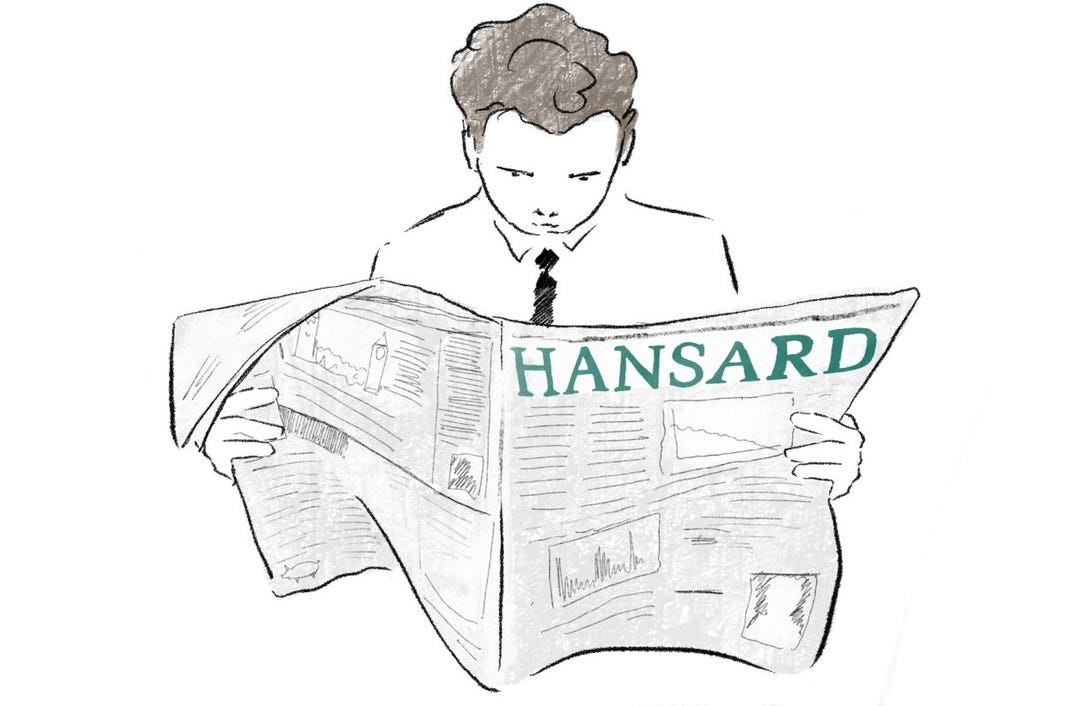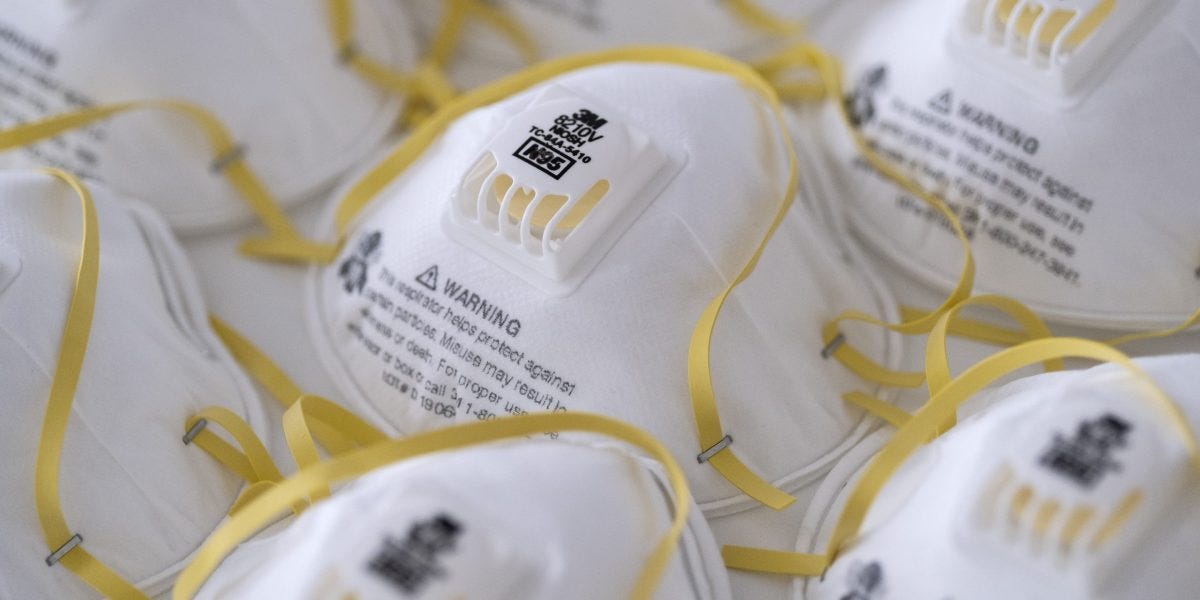Scottish Mortgage Investment Trust comments on China, Newport Wafer Fab, BGI Group
A Beijing to Britain briefing
Hello,
Scottish Mortgage Investment Trust this week presented its Annual Results. The UK’s most popular investment trust has significant and deliberate exposure to China, and noted that “many of the challenges the world faces today are the negative consequences of two contentions.” These are China’s economic development, which is “disrupting the established world order”, and technological progress that has “created companies of increasing geopolitical importance.” Geoeconomics is geopolitics.
Back in London, a British think tank has published a report which should cause serious concern within Government HQ. Civitas analysed the NHS’s reliance on Chinese-manufactured goods, and its conclusions will not make for happy reading in Downing Street, where for the last two years a campaign is supposed to have been rolling out to find and fix supply chain weaknesses. A short stroll away, the Business Secretary is likewise still tossing and turning over intervening in the Chinese-linked acquisition of Welsh semiconductor firm Newport Wafer Fab. As the deadline approaches, a briefing campaign is well underway pushing for Government intervention.
‘Good’ PR for Government came in the form of a surprise announcement that the Business Department would be cutting the remaining overseas aid spend in China. Although this totalled just £13 million last year (or around 2.7% of the total amount of money the Government has so far lost to Covid loan fraud), the news was covered with jubilation by certain segments of Fleet Street. Slightly less good for a Government that has just committed to tackle “crime, crime, crime” is that a company formed by ex-police force members and backed on occasion by taxpayers’ money has been training Chinese police, some of which have ties to policing in Xinjiang.
Elsewhere in the City, as we suggested many months ago would happen, it looks like British politicians are beginning to ramp up pressure on the Government to freeze out the world’s (Chinese) largest genomics company. A group of cross-party MPs and Peers have called for it to be banned, citing links to Xinjiang. Two other firms could face similar political heat. And that cheering you hear? It’s the sound of estate agents clinking glasses: there’s been a remarkable 24.4% increase in the number of London properties owned by China-based individuals between January 2020 and August last year.
Welcome to ‘Beijing to Britain’ - a weekly overview of the ebbs and flows of the discussion in Westminster and the City around the UK’s relationship with China, and how it impacts politics, the private sector and society.
Government bodies and businesses - to learn more about our corporate offer, get in touch.
A quick look at how China is being discussed in Parliament
27 mentions of China/Chinese, 1 mention of Xi Jinping, 24 mentions of Hong Kong, 3 mention of CCP, no mention of Taiwan, no mention of Tibet, no mentions of Xinjiang
589 out of 650 MPs (90.6%) have a Twitter account.
10 MPs’ tweets containing the term ‘China/Chinese’, 3 on ‘Hong Kong’, 0 on ‘Tibet’, 1 on ‘Taiwan’
Order! Order!
Some of the more eye-catching questions and tweets from Westminster dwellers this week
Tom Tugendhat (Conservative, China Research Group) tweeted “Taiwan should attend @WHO gatherings. Pandemics are too important to play politics with and Chinese Communist Party should learn off successful places, not lock them out.”
Alicia Kearns (Conservative, China Research Group) asked “the Secretary of State for Business, Energy and Industrial Strategy, whether his Department plans to take steps to protect nationally significant infrastructure projects such as large scale solar plants in line with the decision to remove China Nuclear Power Group from its involvement in the construction of the Sizewell Nuclear Plant.”
Politics
PPE and China, cuts to ODA, Newport Wafer Fab
PP-protect-Me
Unpacking the supply chain risks
Because China is so heavily invested in a huge number of essential supply chains and the global economy at large, governments can no longer view industries in silos. This became particularly obvious during the Covid pandemic when countries around the world battled for PPE to help save their own citizens - much of which came from China.
This week, think tank Civitas (who’s previous influential report in this space examined British universities and their relationship with China) published their analysis of the NHS’s dependancies of goods manufactured in the PRC. Putting aside the pandemic and its impact on buying from China, there’s figures in here that will cause serious discomfort in Downing Street. For example, 45% of bedside monitors now come from China, up from 0 in 2015. One sixth of medical supplies on the government’s Disaster Relief List, a database of the most vital medical products, depend on Chinese contracts. And the UK is sending £600 million a month to the PRC for critical supplies to keep the NHS going.
That the NHS and the UK health sector as a whole is overly reliant on China is not news in Downing Street. In 2020, Boris Johnson launched Project Defend, which aimed to identify key economic vulnerabilities, in addition to potentially hostile governments, and ensure critical supply lines are no longer dependant on individual countries. There has been no public update on any progress that has been made in this regard.
This approach is, as usual, not shared by the UK’s closest allies. As the report notes, President Jo Biden issued a 100 day review on ‘Building Resilient Supply Chains, Revitalizing American Manufacturing and Fostering Broad-based Growth’, last year, and Republican Marco Rubio and Democrat Elizabeth Warren produced the ‘U.S. Pharmaceutical Supply Chain Review Act’.
One of the suggestions put forward by the authors of the report is the creation of a ‘National Health Service (Security) Act’ to “provide for the security of NHS supply chains and all related devices and equipment.”
Writing in The Times, China Research Group co-chair Alicia Kearns committed the Group to supporting two fixes, both put forward in the Civitas report. First, map supply chains in strategic industries. Second, work with allies to improve shared-value chains in strategic industries - termed ‘ally-shoring.’ For all we know, both of these suggestions may well be underway in Government - but as usual, a lack of transparency around any approaches means MPs are left in the dark.






